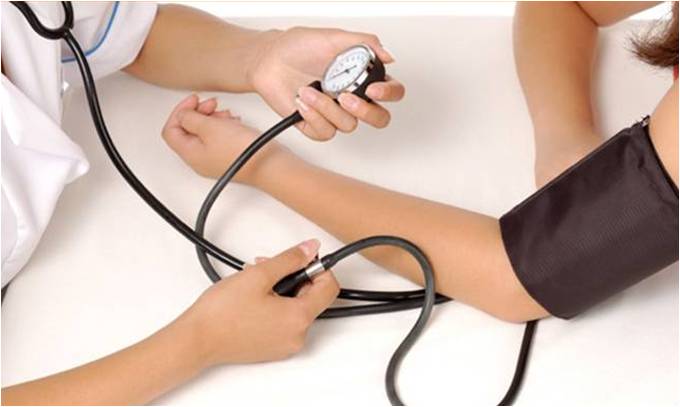
Blood Pressure Guide
What Is Blood Pressure? Blood pressure is the force of blood pressing against the walls of your arteries. When it’s too high, it is called hypertension and raises the heart’s workload and can cause serious damage to the arteries. Over time, uncontrolled high blood pressure increases the risk of heart disease, stroke, and kidney disease. Hypertension Symptoms High blood pressure is called a silent killer because it may have no symptoms for years. In fact, one in five people with the condition don’t know they have it. It can quietly damage the heart, lungs, blood vessels, brain, and kidneys if left untreated. It’s a major risk factor for strokes and heart attacks. The Normal Blood Pressure Normal blood pressure readings are near 120/80, while higher results over time can indicate hypertension. The top number (systolic) shows the pressure when your heart beats. The lower number (diastolic) measures pressure at rest between heartbeats, when the heart refills with blood. Occasionally, kidney or adrenal gland disease can lead to hypertension. Prehypertension: A Warning Signs Almost one-quarter of the population have pre-hypertension. Their blood pressure is consistently just above the normal level — falling anywhere between 120 and 139 for systolic pressure or 80 to 89 for the diastolic pressure. People in this range have twice the risk of developing heart disease than those with a lower reading. The Hypertension Danger Zone The high blood pressure readings average 140/90 or higher though you may still have no symptoms. At 180/110 and higher, you may be having a hypertensive crisis. A hypertensive crisis can lead to a stroke, heart attack, kidney damage, or loss of consciousness. Symptoms of a hypertensive crisis can include a severe headache, anxiety, nosebleeds, and feeling short of breath. Who Gets High Blood Pressure? Up to the age of 45, more men have high blood pressure than women. It becomes more common for both men and women as they age, and more women have hypertension by the time they reach 65. You have a greater risk if a close family member has high blood pressure or if you are diabetic. About 60% of people with diabetes have high blood pressure. Diet and excessive weight can play a role, as well. Hypertension and Sodium Sodium, a major component of salt, can raise blood pressure by causing the body to retain fluid, which leads to a greater burden on heart. It is recommended to eat less than 1,500 milligrams of sodium per day. You’ll need to check food labels and menus carefully. Processed foods contribute up to 75% of our sodium intake. Canned soups and lunch meats are prime suspects. Hypertension and Stress Stress can also make your blood pressure spike. Stress may affect risk factors for heart disease, so it may also have an indirect connection to the hypertension. Stress may lead to other unhealthy habits, such as poor diet, alcohol use, or smoking, which can contribute to high blood pressure and heart disease. Hypertension and Weight Being overweight places a strain on the heart and increases the risk of high blood pressure. That’s why, the diets to lower blood pressure are often designed to control calories. They typically call for cutting fatty foods and added sugars, while increasing fruits, vegetables, lean protein, and fiber. Even losing 10 pounds can make a difference. Hypertension and Alcohol Drinking alcohol can also increase the blood pressure. Guidelines from the American Heart Association state that if you drink alcohol, you should limit the amount to no more than two drinks a day for men, or one a day for women. They define a drink as one 12-ounce beer, four ounces of wine, 1.5 ounces of 80-proof spirits, or one ounce of 100-proof spirits. Hypertension and Caffeine If caffeine can make you jumpy, can it also raise your blood pressure? It might have a temporary effect, but studies haven’t shown any link between caffeine and the development of hypertension. You can safely drink one or two cups a day, according to the American Heart Association. Hypertension and Pregnancy Gestational hypertension is a kind of high blood pressure that occurs in the second half of pregnancy. Without treatment, it may lead to a serious condition called preeclampsia that endangers both the mother and baby. The condition can limit blood and oxygen flow to the baby and can affect the mother’s kidneys and brain. After the baby is born, the mother’s blood pressure usually returns to its normal level. Hypertension and Medicine Cold and flu medicines that contain decongestants are one of several classes of medicine that can cause your blood pressure to rise. Others include NSAID pain relievers, steroids, diet pills, birth control pills, and some antidepressants. If you have high blood pressure, talk to you doctor about what medicines and supplements you are taking that may affect blood pressure. ‘White Coat’ Hypertension People may have a high reading in the doctor’s office, because they’re nervous. Some will only have blood pressure readings periodically and may have a higher chance of developing high blood pressure. To get a more accurate reading, take your blood pressure at home, chart your readings, and share them with your doctor. It is also a good idea to bring in your home monitor in for a check of the device and technique. Hypertension and Children While hypertension is more often a problem for older people, but children can also have high blood pressure. “Normal” blood pressure varies based on a child’s age, height, and sex, so your doctor will need to tell you if there is a concern. Children are at greater risk if they are overweight, have a family history of the illness. Exercise Regular exercise helps lower your blood pressure. Adults should get about 150 minutes of moderate-intensity exercise every week. That could include gardening, walking briskly, bicycling, or other aerobic exercise. Muscle-strengthening activities are recommended at least two days a week and should work all major muscle groups. Stop Smoking People start smoking to reduce stress

